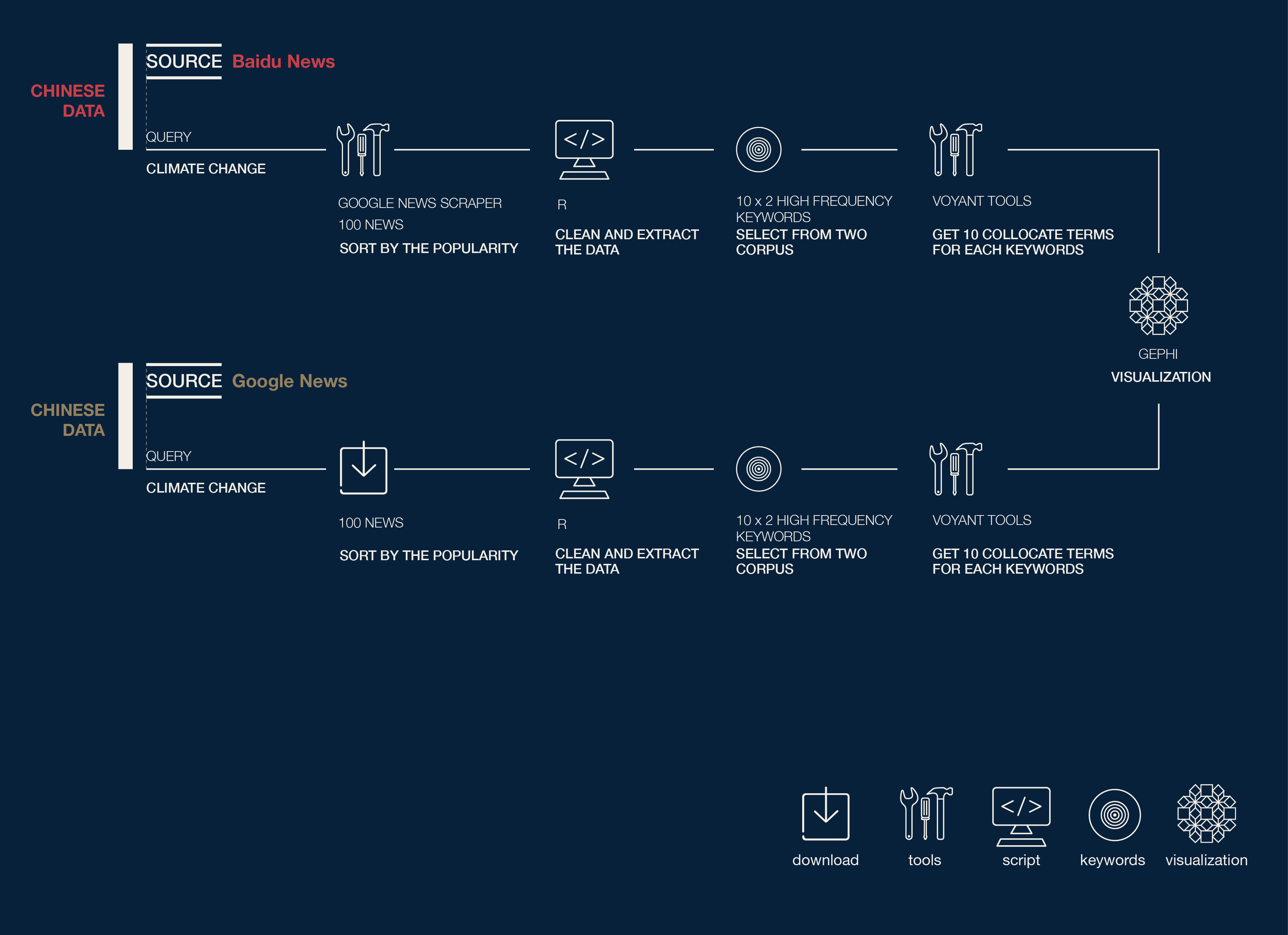Description
News is the concentrated reflection of social ideology. If we want to understand the mainstream view about climate change, it’s better to start from the news. First, we want to understand what are the medias are discussing on the climate change topic? what are the main issues and the relevant terms? and what are the consensus and the controversies between China and America?
The visualization above shows the high frequency words which appears in both the two corpus and their collocated terms, so you can get a general idea about what does the word means in the context. The 20 red points represents the 20 high frequency words from Baidu News, the 20 yellow points represents the 20 high frequency words from Google News, and the white points represents the collocated terms that related to each words.
In the visualization we can see the meaning of the word in the context, After analyzed the collocate terms, we found out that there are both the consensus and the controversies between Chinese medias and American medias. For example, when you look at the keyword “China”, on the american side, the collocate term are something like “leadership”, “partner” or “hoax”, and on the chinese side, you will find something like “united states”, “cooperation”, “development”, etc.


